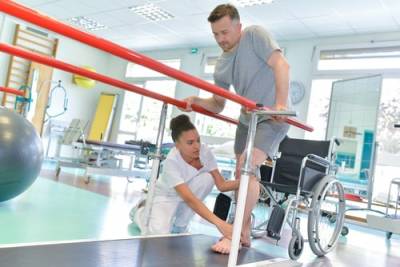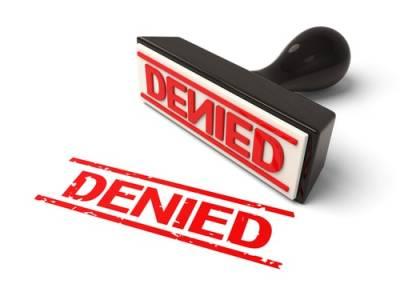Recent Blog Posts
What Types of Workplace Heat Illnesses Qualify for Workers’ Comp?
 During the summer of 2021, California and many other parts of the United States have experienced record-breaking temperatures. This extreme heat has put many people at risk, especially those who work outdoors, around hot equipment, or in buildings without environmental controls. Employers are required to take the necessary measures to prevent heat illnesses for workers, including ensuring that they have sufficient water and access to shade. However, workers in high-risk occupations or others who experience extreme heat may still suffer heat-related injuries or illnesses. Whether this occurred because an employer did not take the proper safety precautions or for other reasons, employees can receive workers’ compensation benefits for any health issues that occurred because of the work they performed.
During the summer of 2021, California and many other parts of the United States have experienced record-breaking temperatures. This extreme heat has put many people at risk, especially those who work outdoors, around hot equipment, or in buildings without environmental controls. Employers are required to take the necessary measures to prevent heat illnesses for workers, including ensuring that they have sufficient water and access to shade. However, workers in high-risk occupations or others who experience extreme heat may still suffer heat-related injuries or illnesses. Whether this occurred because an employer did not take the proper safety precautions or for other reasons, employees can receive workers’ compensation benefits for any health issues that occurred because of the work they performed.
Common Heat Illnesses in the Workplace
Can I Receive Workers’ Comp if My Employer Was Not Insured?
 Employees who are injured while working are eligible to receive workers’ comp benefits. Employers in California are required to maintain workers’ compensation insurance, which will provide coverage for the medical expenses related to an employee’s injury, as well as disability benefits that address a temporary or permanent loss of income. However, if an employer does not maintain the required insurance coverage, an injured worker may be unsure about their options for receiving workers’ compensation benefits. In these cases, a person will need to work with an attorney to ensure they follow the correct steps to receive the benefits they deserve.
Employees who are injured while working are eligible to receive workers’ comp benefits. Employers in California are required to maintain workers’ compensation insurance, which will provide coverage for the medical expenses related to an employee’s injury, as well as disability benefits that address a temporary or permanent loss of income. However, if an employer does not maintain the required insurance coverage, an injured worker may be unsure about their options for receiving workers’ compensation benefits. In these cases, a person will need to work with an attorney to ensure they follow the correct steps to receive the benefits they deserve.
Workers’ Comp Benefits for Employees of Uninsured Employers
What Role Do Union Welfare Funds Play in Workers’ Compensation Cases?
 Most employees who are injured while working or who have suffered negative health conditions because of their jobs will qualify for workers’ compensation benefits. These benefits will ensure that a person receives the necessary medical care, and they can also help address a person’s loss of income due to a temporary or permanent disability. In addition to these benefits, union workers may have other options for receiving assistance, including payments made through a union welfare fund.
Most employees who are injured while working or who have suffered negative health conditions because of their jobs will qualify for workers’ compensation benefits. These benefits will ensure that a person receives the necessary medical care, and they can also help address a person’s loss of income due to a temporary or permanent disability. In addition to these benefits, union workers may have other options for receiving assistance, including payments made through a union welfare fund.
What Is a Union Welfare Fund?
Unions allow workers to utilize collective bargaining to ensure that they have certain rights and benefits. Collective bargaining agreements may address wages, work schedules, paid leave, and rules that apply to employers and employees. Workers who join a union and receive these benefits will usually be required to pay union dues. These dues may be put toward a union welfare fund that provides different types of benefits for union members.
What Are Supplemental Job Displacement Benefits?
 A workplace injury can affect a person in many ways. Fortunately, workers’ compensation benefits are available to provide injured workers with financial assistance while they are recovering, and workers’ comp will also pay for all expenses related to medical treatment for an injury. In many cases, a person can receive temporary disability benefits while their injury has limited their ability to work. Once they have fully recovered, they can return to work. However, if a person will be unable to return to their former position, they may be able to receive permanent disability benefits, as well as supplemental job displacement benefits that will allow them to find work that fits their limitations.
A workplace injury can affect a person in many ways. Fortunately, workers’ compensation benefits are available to provide injured workers with financial assistance while they are recovering, and workers’ comp will also pay for all expenses related to medical treatment for an injury. In many cases, a person can receive temporary disability benefits while their injury has limited their ability to work. Once they have fully recovered, they can return to work. However, if a person will be unable to return to their former position, they may be able to receive permanent disability benefits, as well as supplemental job displacement benefits that will allow them to find work that fits their limitations.
How Are Medical Benefits Handled in California Workers’ Comp Cases?
 When people suffer work-related injuries, they are generally eligible for workers’ compensation benefits. Medical costs related to a work injury, disease or illness contracted while working, or a health condition that was caused by the work a person performed should be fully covered. However, there are a variety of requirements that must be met during treatment, and some limitations may apply. Injured workers will want to make sure to understand their rights and the procedures that will be followed as they receive treatment, and they may need to work with an attorney to make sure they receive the medical benefits they deserve.
When people suffer work-related injuries, they are generally eligible for workers’ compensation benefits. Medical costs related to a work injury, disease or illness contracted while working, or a health condition that was caused by the work a person performed should be fully covered. However, there are a variety of requirements that must be met during treatment, and some limitations may apply. Injured workers will want to make sure to understand their rights and the procedures that will be followed as they receive treatment, and they may need to work with an attorney to make sure they receive the medical benefits they deserve.
Medical Care Covered by Workers’ Compensation
When doctors or other medical professionals provide treatment covered by workers’ comp, this treatment must be evidence-based. It must be scientifically proven to be an effective treatment for the injuries that a person experienced while working or due to their work. The California Department of Workers’ Compensation (DWC) maintains a set of regulations known as a medical treatment utilization schedule (MTUS). This schedule provides guidelines for appropriate treatments for different parts of the body, including those related to post-surgery pain treatment and therapy, as well as acupuncture.
What Types of Back Injuries Qualify for Workers’ Compensation?
 There are multiple types of injuries that a person may suffer in the workplace or because of the work they have performed. Back injuries can be very painful, and they can limit a person’s movements and their ability to bend over and lift objects, affecting the work they can perform. Because of this, workers who suffer back injuries will want to determine whether they can receive workers’ compensation.
There are multiple types of injuries that a person may suffer in the workplace or because of the work they have performed. Back injuries can be very painful, and they can limit a person’s movements and their ability to bend over and lift objects, affecting the work they can perform. Because of this, workers who suffer back injuries will want to determine whether they can receive workers’ compensation.
Common Types of Back Injuries
An injury may affect a person’s backbone and spinal cord, or they may experience injuries to the muscles and ligaments in the back. These injuries may include:
-
Strains and sprains - Back muscles and ligaments may be injured because a person attempted to lift an object that was too heavy, because they twisted their back into an unnatural position, or due to ongoing strain to the back muscles. In many cases, these injuries require a person to rest and refrain from strenuous activities for several days. A person may also need to take anti-inflammatory medications.
How Does a PD Rating Affect Workers’ Compensation Disability Benefits?
 People who suffer work-related injuries are eligible for workers’ compensation benefits. These benefits cover the costs of medical care, and if an injured worker is required to miss work or suffers a loss of income, they may also receive disability benefits. While temporary disability benefits will apply in situations where a person cannot work or can only work at a reduced capacity for a short period of time, permanent disability benefits may be available for those who have suffered permanent impairments to their ability to earn an income. However, the process of determining the amount an injured worker can receive in permanent disability benefits can be complicated, and it involves the calculation of a PD rating.
People who suffer work-related injuries are eligible for workers’ compensation benefits. These benefits cover the costs of medical care, and if an injured worker is required to miss work or suffers a loss of income, they may also receive disability benefits. While temporary disability benefits will apply in situations where a person cannot work or can only work at a reduced capacity for a short period of time, permanent disability benefits may be available for those who have suffered permanent impairments to their ability to earn an income. However, the process of determining the amount an injured worker can receive in permanent disability benefits can be complicated, and it involves the calculation of a PD rating.
My Workers Compensation Claim Was Denied. Now What?
 In California, employees who are injured on the job are entitled to reimbursement for medical expenses and part of their lost income through workers’ compensation. With some exceptions, anyone who is hurt while performing work tasks is eligible for workers’ compensation or “workers’ comp.” However, some workers’ compensation claims are denied. If you or a loved one applied for workers’ compensation and were denied, a workers’ compensation lawyer may be able to help.
In California, employees who are injured on the job are entitled to reimbursement for medical expenses and part of their lost income through workers’ compensation. With some exceptions, anyone who is hurt while performing work tasks is eligible for workers’ compensation or “workers’ comp.” However, some workers’ compensation claims are denied. If you or a loved one applied for workers’ compensation and were denied, a workers’ compensation lawyer may be able to help.
When is a Worker Not Entitled to Workers Compensation?
California workers’ compensation is extensive and covers most individuals. However, there are some exceptions to this generality. For example, if you work in exchange for housing or other aid instead of wages, you do not qualify for workers’ compensation. Individuals who are employed by their parent, spouse, or child in a family business may also be excluded from workers’ compensation. You do not qualify for workers’ compensation if the injury was not related to your job or it occurred when you were off the clock.
Did Your Job Worsen a Pre-Existing Medical Condition? You May be Entitled to Workers’ Compensation
 Most people struggle with one or more medical conditions at some point in their lives. Whether you have an old sports injury, a degenerative disease, or hearing or vision problems, managing the condition’s symptoms may be a constant struggle. So what happens when work tasks aggravate an existing medical concern? Is the injured worker entitled to financial compensation through workers’ compensation? Is the worker barred from financial recovery because he or she had the condition before being hired?
Most people struggle with one or more medical conditions at some point in their lives. Whether you have an old sports injury, a degenerative disease, or hearing or vision problems, managing the condition’s symptoms may be a constant struggle. So what happens when work tasks aggravate an existing medical concern? Is the injured worker entitled to financial compensation through workers’ compensation? Is the worker barred from financial recovery because he or she had the condition before being hired?
California Workers’ Compensation Typically Covers Aggravation of Pre-Existing Conditions
Many people assume that they cannot get workers’ compensation for a medical issue that existed before starting their job. Fortunately, California workers’ compensation does cover situations in which a person’s job worsens a pre-existing medical problem. Unfortunately, it is often difficult to get the compensation you need for a pre-existing condition. To get reimbursement for medical bills and lost wages through your employer’s workers’ compensation insurer, you must prove that:
Can I Get Workers’ Compensation for a Disease or Illness I Acquired at Work?
 Workers’ compensation is typically associated with traumatic workplace incidents such as falls or equipment-related accidents. However, California workers’ compensation may also cover illnesses and diseases that a person acquires at work. If you have fallen ill and the condition is work-related, you may be entitled to compensation for medical bills and part of your lost income. Unfortunately, workers’ compensation claims involving illnesses are often harder to prove than other types of worker’s compensation claims.
Workers’ compensation is typically associated with traumatic workplace incidents such as falls or equipment-related accidents. However, California workers’ compensation may also cover illnesses and diseases that a person acquires at work. If you have fallen ill and the condition is work-related, you may be entitled to compensation for medical bills and part of your lost income. Unfortunately, workers’ compensation claims involving illnesses are often harder to prove than other types of worker’s compensation claims.
What Types of Illnesses May Be Covered by Workers’ Compensation?
California covers injuries and illnesses resulting from the work environment and/or completing work tasks. So, if your illness or disease can be linked to job duties or the workplace, you may qualify for compensation. Some illnesses that often lead to workers’ compensation claims include:








